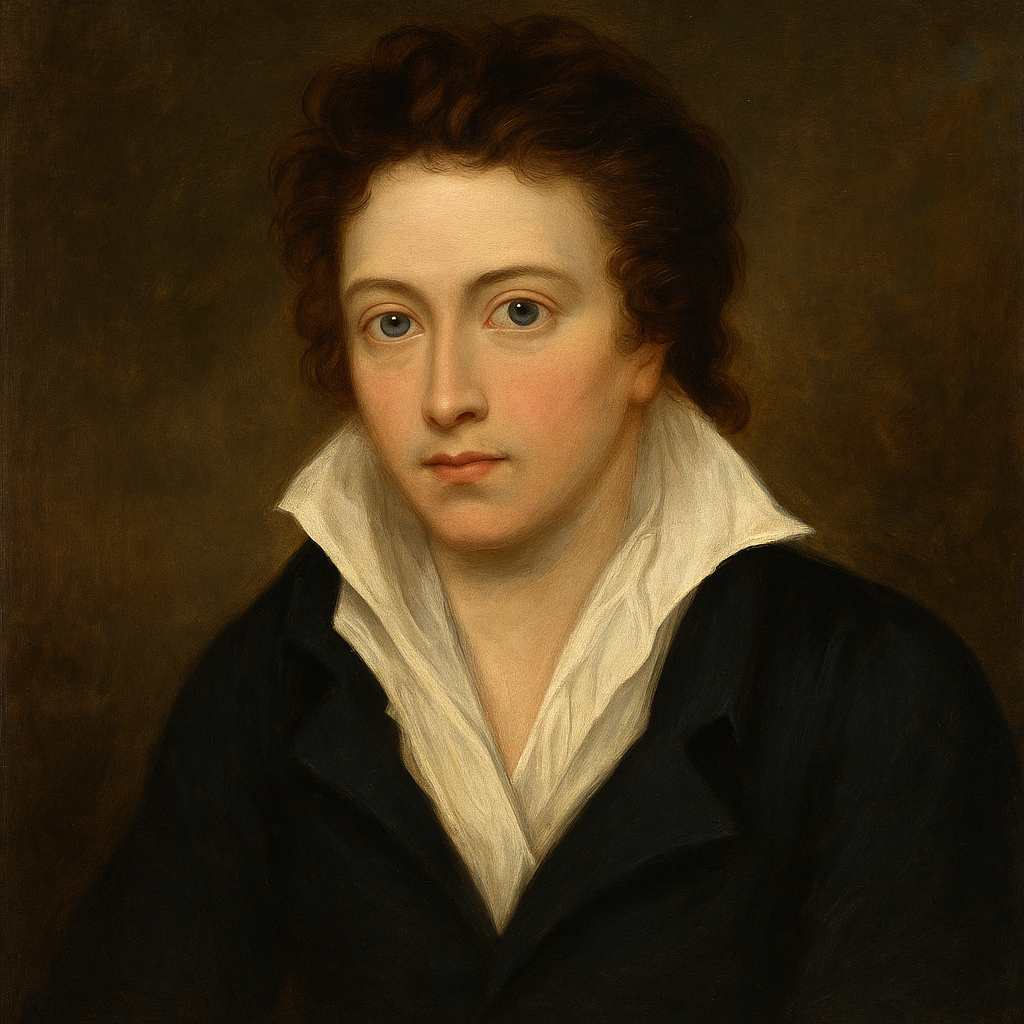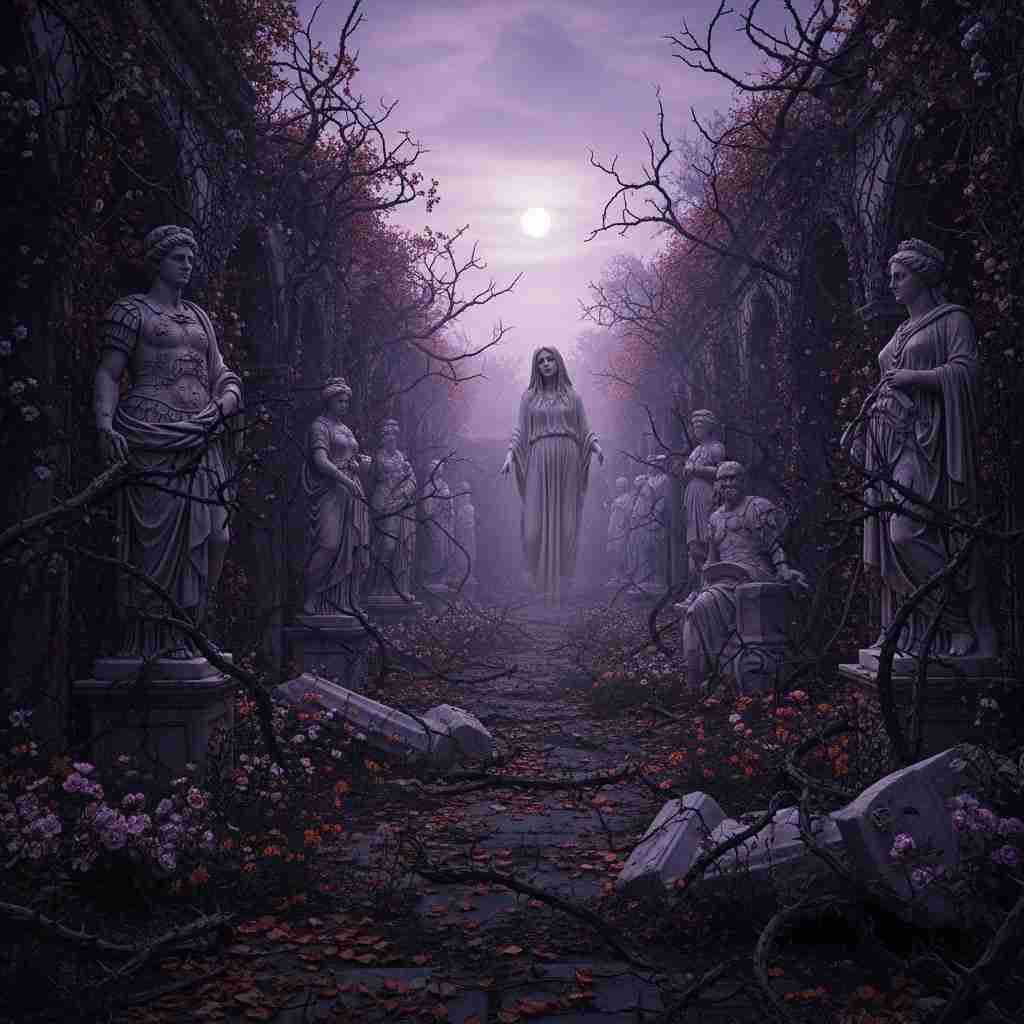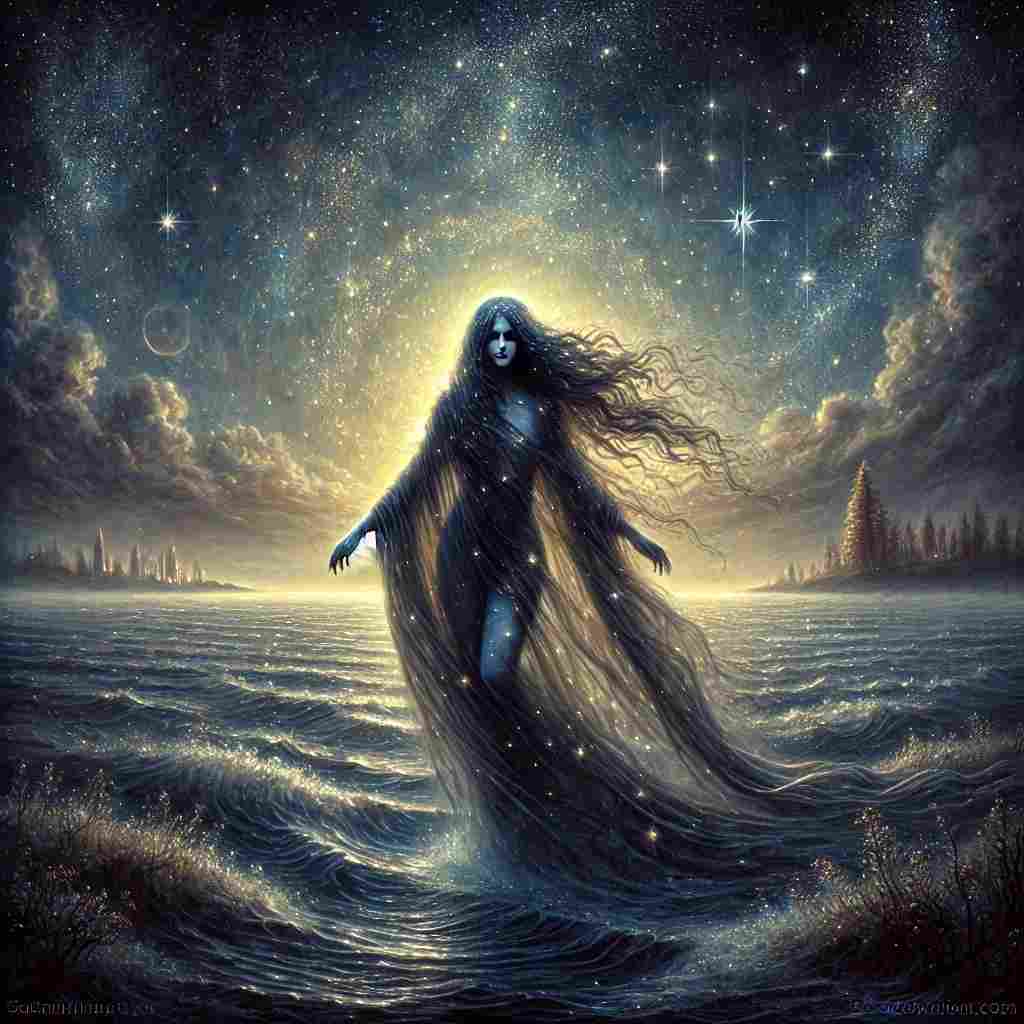10 Poems by Percy Bysshe Shelley
1792 - 1822
Percy Bysshe Shelley Biography
Percy Bysshe Shelley, born on August 4, 1792, in Field Place, Horsham, Sussex, stands as one of the most iconic figures of the Romantic movement in English literature. A radical in his poetry and his politics, Shelley's life was as tempestuous and unconventional as his verse, leaving an indelible mark on the literary landscape despite his tragically short life.
Born into a wealthy family, Shelley was the eldest legitimate son of Sir Timothy Shelley, a Whig Member of Parliament. From an early age, Shelley displayed a rebellious spirit and a keen intellect that would define his later years. His education began at Syon House Academy and continued at Eton College, where he earned the nickname "Mad Shelley" for his eccentric behavior and passionate interest in science, particularly electricity and chemistry.
In 1810, Shelley entered University College, Oxford, where his radical ideals began to take shape. It was here that he published his first work, a Gothic novel titled "Zastrozzi" (1810), which already showed glimpses of his revolutionary thinking. However, it was his pamphlet "The Necessity of Atheism" (1811), co-authored with his friend Thomas Jefferson Hogg, that would have far-reaching consequences. The pamphlet's provocative stance led to Shelley's expulsion from Oxford, a pivotal moment that solidified his reputation as a freethinker and set him on a collision course with societal norms.
Shelley's personal life was marked by controversy and tragedy. At the age of nineteen, he eloped with sixteen-year-old Harriet Westbrook, a decision that estranged him from his family and led to financial difficulties. The marriage was tumultuous, and in 1814, Shelley abandoned Harriet (then pregnant with their second child) to run away with Mary Godwin, the daughter of political philosopher William Godwin and feminist Mary Wollstonecraft.
This period of Shelley's life was one of intense creativity and personal upheaval. He completed his first major poem, "Queen Mab" (1813), a radical work that critiqued organized religion and advocated for revolutionary social change. The poem's distribution was limited due to its controversial content, but it circulated widely in pirated editions and had a significant impact on radical thinkers of the time.
Shelley's relationship with Mary Godwin (later Mary Shelley) was intellectually stimulating and creatively fruitful for both of them. In the summer of 1816, the couple traveled to Switzerland, where they spent time with Lord Byron. It was during this famous gathering at the Villa Diodati that Mary conceived the idea for her novel "Frankenstein," while Shelley composed several significant poems, including "Hymn to Intellectual Beauty" and "Mont Blanc."
Tragedy struck in December 1816 when Harriet Shelley committed suicide. Shortly after, Shelley and Mary Godwin married, partly to strengthen Shelley's custody claim over his children with Harriet. However, the courts denied him custody, deeming him morally unfit due to his atheistic views and unconventional lifestyle.
The years 1818 to 1822 were Shelley's most productive as a poet. During this period, he wrote some of his most celebrated works, including the lyrical drama "Prometheus Unbound" (1820), which he considered his masterpiece. This complex allegorical work, inspired by Aeschylus but radically reimagined, embodies Shelley's vision of moral and spiritual liberation. Other notable works from this period include the intensely personal "Ode to the West Wind" (1819), the elegy "Adonais" (1821) written for John Keats, and the political poem "The Mask of Anarchy" (1819), composed in response to the Peterloo Massacre.
Shelley's poetry is characterized by its lyrical beauty, intellectual depth, and revolutionary fervor. He often employed complex mythological and philosophical allusions, yet his verse also displays a remarkable musicality and emotional intensity. Themes of love, beauty, and the power of nature intertwine with calls for political and social reform, reflecting Shelley's belief in the transformative power of poetry.
Despite his artistic achievements, Shelley struggled to find a wide readership during his lifetime. His radical politics and unconventional personal life made him a controversial figure, and many of his most important works were published posthumously. Nevertheless, his influence on his contemporaries and on subsequent generations of poets and thinkers was profound.
Shelley's life was cut tragically short on July 8, 1822, when he drowned in a sudden storm while sailing in the Gulf of Spezia. He was just shy of his thirtieth birthday. His body, when recovered, was cremated on the beach in the presence of Lord Byron and other friends. In a fittingly Romantic gesture, Shelley's heart, which reportedly did not burn, was given to Mary Shelley, who kept it for the rest of her life.
In the years following his death, Shelley's reputation grew steadily. His widow, Mary Shelley, worked tirelessly to preserve and promote his literary legacy, editing his unpublished works and defending his reputation against detractors. By the Victorian era, Shelley was recognized as one of the major English Romantic poets, admired for both his technical mastery and his visionary qualities.
Shelley's influence extends far beyond the realm of poetry. His political writings, including the essay "A Philosophical View of Reform" (written in 1820 but not published until 1920), articulate a vision of nonviolent resistance and social change that prefigures later movements for civil rights and social justice. His advocacy for vegetarianism, free love, and atheism, while scandalous in his own time, anticipates many later social and philosophical developments.
In the field of literary criticism, Shelley's essay "A Defence of Poetry" (written in 1821, published posthumously in 1840) remains a seminal text. In it, he argues for the vital importance of poetry in society, famously declaring that "poets are the unacknowledged legislators of the world." This essay has been influential in shaping ideas about the role of the poet and the nature of poetic inspiration.
Percy Bysshe Shelley's life and work embody the Romantic ideal of the poet as prophet and revolutionary. His combination of aesthetic beauty and political radicalism, his belief in the power of love and the human imagination to transform society, and his tragic early death have all contributed to his enduring mystique. As a poet, thinker, and icon of rebellious youth, Shelley continues to inspire and challenge readers, ensuring his place as a central figure in the canon of English literature.
This text was generated by AI and is for reference only. Learn more
Username Information
No username is open
Unique usernames are free to use, but donations are always appreciated.
Quick Links
© 2024-2025 R.I.Chalmers (V2Melody).

All music on this site by R.I.Chalmers (V2Melody) is licensed under a Creative Commons Attribution-NonCommercial 4.0 International License.
Attribution Requirement:
When using this music, you must give appropriate credit by including the following statement (or equivalent) wherever the music is used or credited:
"Music by R.I.Chalmers (V2Melody) – https://v2melody.com"
Support My Work:
If you enjoy this music and would like to support future creations, donations are always welcome but never required.
Donate











